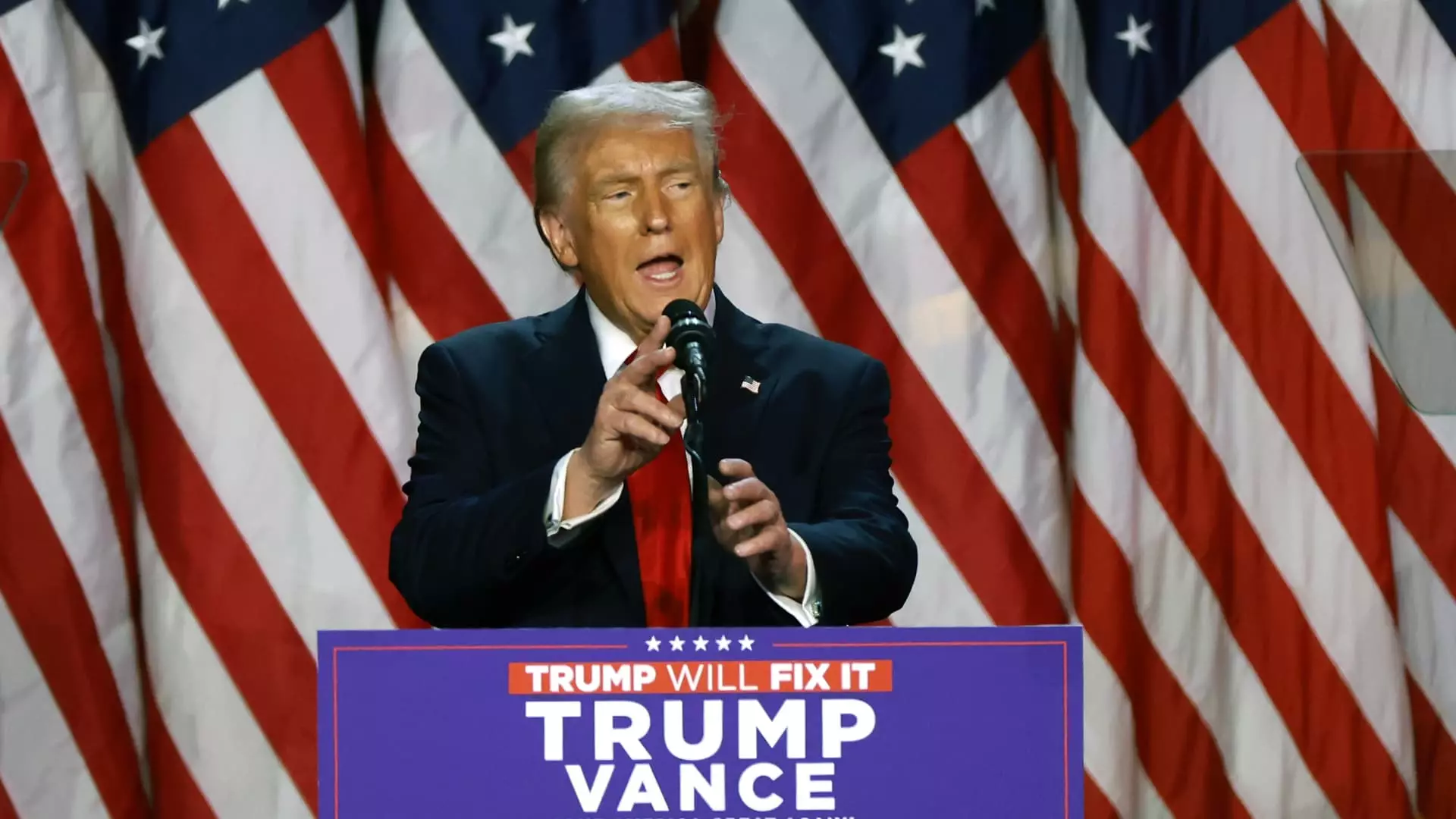In the wake of the recent 2024 election, the financial markets have surged dramatically, reflecting an exuberance that many voters do not share. Following President-elect Donald Trump’s victory, coupled with the Federal Reserve’s swift response in announcing an interest rate cut, key indices such as the Dow Jones Industrial Average, S&P 500, and Nasdaq have all reached unprecedented heights, marking their best performance within a year. However, this surge raises important questions about the reality of the average American’s financial situation, suggesting a striking contrast between market optimism and personal financial anxiety.
Terms like “Vibecession” encapsulate this phenomenon—a mismatch where public sentiment regarding economic stability diverges sharply from Wall Street’s bullish runs. Despite the boosted markets, many Americans face financial insecurities. This discrepancy poses serious implications for individuals trying to navigate their own economic futures. Financial experts urge caution, emphasizing that while the political landscape may shift, individuals must prioritize their own financial well-being over the fluctuations of the stock market.
As the political scene fluctuates, it’s vital for individuals to center their attention on financial strategies they can control, rather than the whirlwind of government policy shifts. As Rianka Dorsainvil, a certified financial planner and founder of YGC Wealth, aptly notes, “Stick to your long-term financial plan, adjusting only when your personal circumstances or goals change.” This mantra underscores the importance of maintaining focus amid the tumultuous backdrop of politics and macroeconomic variables.
Practicing sound financial habits can empower consumers in uncertain times. Despite the broader economic conditions shaped by national policies on tariffs, taxes, and interest rates, individuals have the agency to improve their own financial footing. One of the fundamental ways to achieve this is by taking proactive steps to create a more stable personal financial environment.
One effective strategy involves establishing a robust emergency fund. Financial experts recommend setting aside three to six months’ worth of essential living expenses in a high-yield savings account. This buffer not only promotes peace of mind but also equips individuals to tackle unforeseen financial burdens without panic. Preparing for life’s unpredictabilities is crucial, especially when broader economic trends may lead to instability in the job market and personal income.
In addition to emergency savings, it’s essential to revamp retirement savings tactics. Options such as 401(k) plans and IRAs should be reviewed, taking note of their tax advantages. According to Lee Baker, a certified financial planner, taking full advantage of employer-matched contributions can significantly elevate one’s retirement portfolio. During open enrollment periods, consumers should meticulously assess health insurance options, including Flexible Spending Accounts (FSAs) and Health Savings Accounts (HSAs). HSAs, in particular, offer incredible tax benefits, allowing for tax-free contributions, growth, and withdrawals for qualified medical expenses.
Debt management is another critical aspect of forging a solid financial future. Individuals burdened with credit card debt should consider halting additional credit card usage and collaborating with nonprofit credit counseling agencies. Such resources can furnish personalized strategies for effective debt reduction, ultimately enhancing one’s ability to pivot in response to changing economic conditions.
Furthermore, individuals should not overlook the potential for reclaiming unclaimed assets or “missing money.” Many may be surprised to discover old bank accounts or forgotten funds lying dormant. By utilizing resources like the National Association of State Treasurers, individuals can actively search for their unclaimed properties, often taking only a few moments to fill out necessary forms.
It’s essential for Americans not to be swayed by the immediate, often sensational market reactions that can lead to hasty financial decisions. Instead, savvy individuals should cultivate a laser-like focus on the fundamental financial practices that foster resilience. By establishing a solid financial framework grounded in emergency savings, informed investment choices, effective debt management, and the reclamation of lost assets, individuals position themselves to weather the uncertainties of any economic landscape. As Dorsainvil wisely suggests, the foundation one builds today will serve as a protective buffer against future unpredictabilities, regardless of the political climate.

